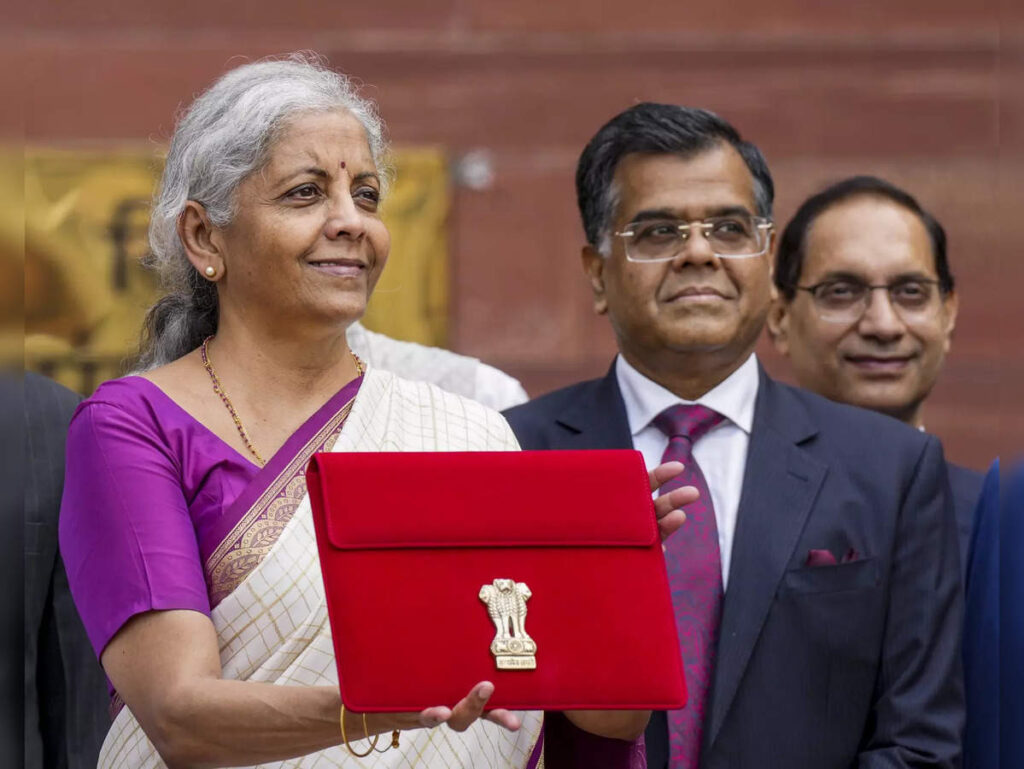NEW DELHI: Finance Minister Nirmala Sitharaman in her budget speech on Tuesday said the government will implement 3 schemes for ‘Employment Linked Incentive’, as part of the Prime Minister’s package. These will be based on enrolment in the EPFO, and focus on recognition of first-time employees, and support to employees and employers.
Under the Prime Minister’s Package of 5 schemes and initiatives for employment, skilling and other opportunities for 4.1 crore youth over a 5-year period, one-month salary of up to Rs 15,000 will be provided in 3 installments to first-time employees, as registered in the EPFO. Under Scheme B, incentive will be provided at specified scale directly to both employee and employer with respect to their EPFO contribution in the first 4 years of employment. Under Scheme C, the government will reimburse up to Rs 3,000 per month for 2 years towards EPFO contribution of employers, for each additional employee.
Industry experts said the Union Budget 2024 announcements such as the direct benefit transfer of up to Rs 15,000 through the Employees’ Provident Fund Organization (EPFO) for new entrants to the workforce, the provision of internships with top 500 companies, and the introduction of a monthly internship allowance of Rs. 5,000, along with a one-time assistance of Rs. 6,000, are expected to integrate more individuals into the formal economy.
The allocation of Rs 1.48 lakh crore for education, employment, and skill development in the Budget of 2024-25 is a big step toward investing in human capital development. This massive investment, routed through EPFO, underlines that the government does recognize the existence of a linkage between education, skills, and employment.
“The budget has sought to tackle the skills deficit in India’s workforce and enhance employability through this holistic approach. The allocation is opportune and assumes special significance against the backdrop of India’s demographic dividend and the rapidly changing nature of jobs across the world. More remarkably, at a time when all schemes that were announced in the February Interim Budget are yet to be implemented, it shows a continuity of policy direction. This holistic strategy—linking education with skill building and employment support—can arguably further the pace in transforming India into a knowledge economy and enhance its competitiveness globally,” said Gaurav Singh Parmar, Associate Director, Fincorpit Consulting.
Ashish Aggarwal, Director, Acube Ventures, also said that the latest decision of the government to refund up to Rs 3,000 per month for two years towards EPFO contribution for every additional employee is a game-changing step for both employers and job seekers.
“Available under the Rs 1.48 lakh crore assigned to education and employment, this step does double duty by incentivizing companies with an increased workforce, which also goes on to mean massive job creation in the near future across all quarters. Meaningful financial load reduction among employers, especially among MSMEs and startups. For workers, this guarantees first-day social security protection. For both parties, the two-year duration of support is quite a long runway for businesses to incorporate new employees. This policy will be very instrumental in formalizing jobs—especially in those sectors where the rate of informal employment is very high—in order to enhance the social security network and the overall stability of the economy.”
Industry experts said that EPFO finds a place in the 2024-25 budget, and probably its function is also linked to education and employment. Therefore, this Rs 1.48 lakh crore along with the Rs 3,000 monthly reimbursement scheme becomes a massive public investment in human resources.
Siddharth Maurya, Founder & Managing Director of Vibhavangal Anukulakara Private Limited said, “This approach finds a comfortable place in the globally practiced integration of social security with skill development. Coupling the EPFO contribution to new employment, the government would be using Social Security measures as a lever for job creation. Result-oriented continuation of schemes of Interim Budget will hint that perennial vision exists towards Workforce Development, which must in principle proceed to address fundamental challenges like Youth Unemployment and Underemployment. This policy therefore creates a win-win situation for both employers and employees, possibly leading to accelerated economic growth and improvement in the overall quality of employment in India through increased participation in the formal sector.”
Source: Business Standard




 Budget 2024: FM Nirmala Sitharaman Unveils Road Map For ‘Viksit Bharat’
Budget 2024: FM Nirmala Sitharaman Unveils Road Map For ‘Viksit Bharat’ 